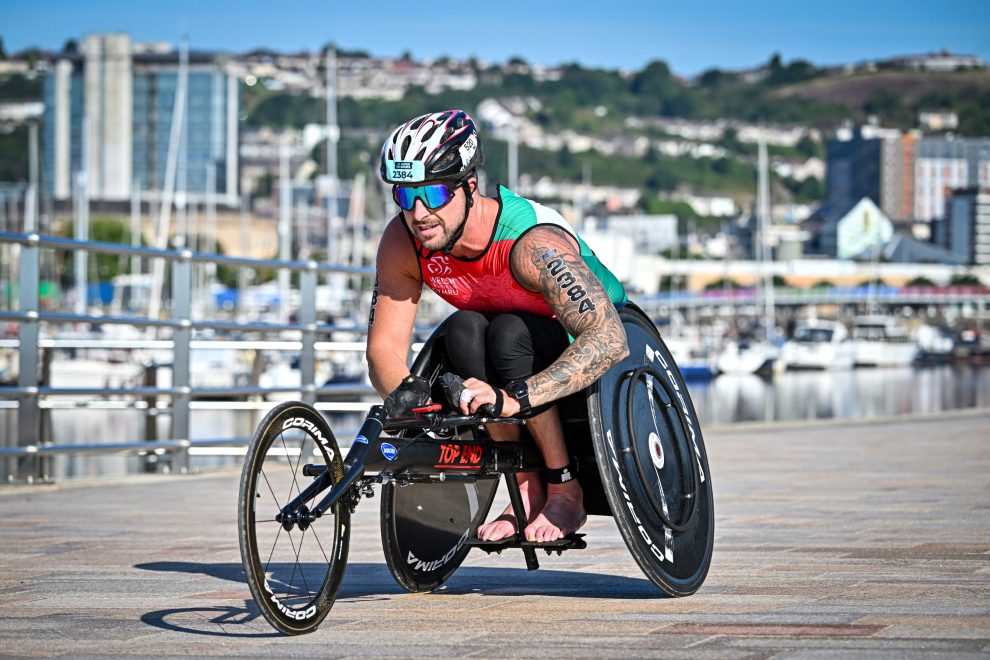Juggling the stress of day to day life alongside training to compete internationally is a challenge for every serious athlete. When daily tasks are all the more challenging due to being in a wheelchair, it can be even tougher.
Para-triathlete Darren Williams has a goal of representing Great Britain at the World Para-Triathlon Series events. He is currently being supported through a partnership between Welsh Triathlon and the University of Wales Trinity Saint David.
Part of this package involves sport science support provided by UWTSD’s Exercise Physiologist Geraint Forster and his students on the BSc Sport and Exercise Science degree.
Alongside regular physiological testing such as VO2max testing, Darren has received underwater swim analysis, strength and conditioning support, and sport therapy treatments.
Darren says the expert advice he has received about managing his training alongside the stresses of life has been a ‘game-changer’.
He said:
“I have been tracking Heart rate Variability since the beginning of 2023, it’s proven to be a game changer in my consistency in training. I can now monitor how my body is reacting to the stressors not only in training but life’s stressors as a para-athlete. I can make adjustments to the intensity/volume to make sure I stay on track and consistent. Up until I started using the HRV tracker, I was overtraining and would often be run down and ill.”
UWTSD’s Exercise Physiologist Geraint Forster explains:
“Heart-rate variability is a measure of the gaps between each heartbeat. It tells us a little bit more than just taking resting heart rate. If taken regularly every morning, it gives an indication as to whether the body is well rested and recovered or is still fatigued or stressed.
“It not only takes into account training stress, but also things like how well you have slept, whether you are feeling anxious, whether you might be fighting off an illness, the quality of your diet, alcohol consumption, etc. It gives an overall idea of your ‘readiness’ to train.”
He added:
“It is tempting for athletes to always train hard and to have a ‘no pain, no gain’ attitude, but research tells us this is not the most effective method – it tends to result in poor performances, injury and burn-out.
“In all athletes, but even more so with para-athletes where day-to-day tasks such as dropping the kids off at school can be more taxing, it is very important to listen to the body. Tracking HRV allows you to know when you should push hard in training, and when you should ease back. This then hopefully results in being able to train more consistently and get better results. This is what Darren is now finding since we introduced him to HRV.”


















